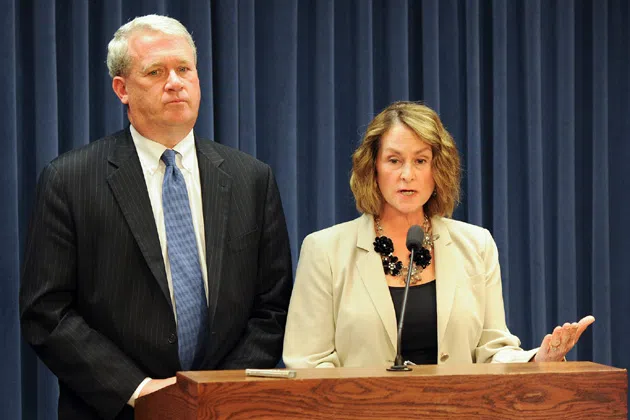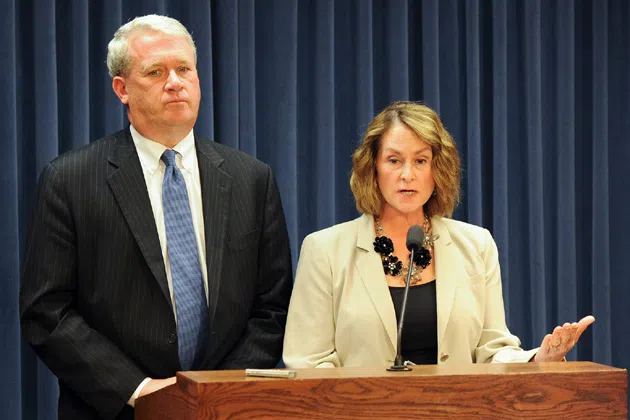
By John Gregory/Illinois Radio Network
CHICAGO – Republican legislative leaders are proposing several changes they say will save Chicago Public Schools without amounting to “state bailout” of the district.
The changes will be organized in two pieces of legislation: one creating an emergency oversight board appointed by the state superintendent of schools, the other allowing CPS to declare bankruptcy.
House Minority Leader Jim Durkin (R-Western Springs) said this doesn’t involve providing additional taxpayer funds to shore up CPS finances.
“This is not a bailout. This is not a state bailout of CPS,” said Durkin. “Taxpayers statewide should not and will not be held responsible for the historically bad decisions made by Chicago politicians.”
The latest CPS budget had banked on $480 million in pension assistance from the state, with the district warning that without the aid, thousands of teachers would be laid off and classroom sizes would swell.
Gov. Bruce Rauner said this legislation would prevent that from happening.
“I do not want to see a single teacher lose his or her job in Chicago,” said Rauner. “I would like to see more teachers in Chicago. We need to take action. The mayor has failed on this.”
Neither Rauner nor Durkin explained how the legislation could solve the immediate budget gap at CPS, with Durkin answering by saying Democratic legislative leaders need to allow the bills to move forward quickly.
“It’s up to two guys: (House Speaker) Mike Madigan (Senate President) John Cullerton,” Durkin said.
Cullerton made it clear he won’t support the bills, saying in a statement, “This is not going to happen. It’s mean spirited and evidence of their total lack of knowledge of the real problems facing Chicago Public Schools. The unfair treatment of pension systems by the state is the immediate cause of CPS’ financial problem.”
On the House side, State Rep. Greg Harris (D-Chicago) compared the idea of Illinois running CPS to the water supply crisis in Flint, Michigan. The city’s water supply was contaminated by lead when a state-appointed emergency manager changed its water source in an effort to save money. Harris said he’s worried about similar “bad action by state bureaucrats” with the proposed oversight board.
“If we can’t learn from these mistakes, then shame on us,” said Harris. “We don’t want to go down a path that is proven to be hazardous and proven to put our families at risk.”
Rauner called such comparisons “inflammatory rhetoric to spin things.”
The legislation hasn’t been filed yet, though Durkin and Radogno promised to do so before the legislature returns to Springfield next week.





